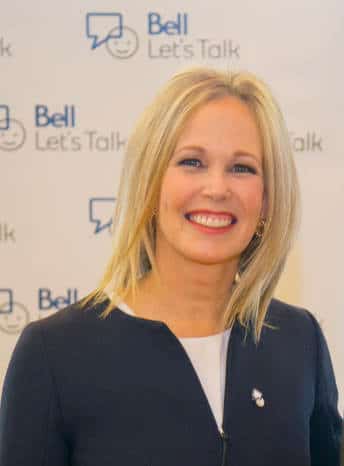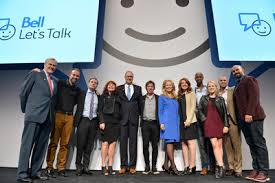On January 31, 2018 Canadians will send millions of messages across social media platforms aimed at eliminating mental health stigma.
Bell Let’s Talk Day is an annual outpouring of honest reflection and calls to action that’s unmatched in Canadian health initiatives. One of the key architects of this day – and the year-round campaign that supports it – is Mary Deacon, one of Canada’s most celebrated mental health advocates.
Before she speaks at a Winnipeg Chamber luncheon one week before Bell Let’s Talk Day, we caught up with her to ask about the campaign’s design and how it’s impacted her personally.
The Winnipeg Chamber: The Bell Let’s Talk campaign has shared so many stories. Is there one that has stuck with you personally?
Mary Deacon: I honestly can’t choose just one story. I think what has stuck with me the most overall is just how important and high profile mental health has become in Canada.
I’ve been part of the mental health community for close to 20 years and longer if you consider its impact on my own family, going back to when we lost my brother David to depression and suicide in 1991. Based on what I’ve heard and what people tell me, mental health is finally an issue whose time has come.
Talking about mental health, caring about mental health, expecting mental health services to be on par with physical health services is all becoming a bigger part of the conversation in this country. It is an issue on the nation’s agenda, and our voices are only getting louder and louder.
WC: How do you and your team choose priorities given the immensity of the campaign and your goal?
MD: For Bell Let’s Talk Day our goal has remained the same since the beginning: to raise awareness and reduce the stigma surrounding mental illness, together with our many mental health partners across the country.
There has never been more interest or discussion about the topic of mental health and that is a great thing. As more people become engaged and passionate it will become a higher priority for action, in our workplaces, schools and our country as a whole.
Reaching young people is very important – we know from our research that young people really care about mental health, and we also know that the need for supports and services is great. Today’s youth will be Canada’s future leaders and we have the potential for that generation to grow up to be free of the stigma surrounding mental health. We can all learn from their passion and their stories to create a more compassionate, inclusive Canada.

WC: How do you see the campaign evolving in future years?
MD: Each year the campaign evolves based on feedback we receive from a wide range of partners. This year there was a fundamental shift in our awareness campaign, putting a focus of the stories of Canadians from all walks of life, all ages and truly representing the diversity of our country, including Andi Sharma and Michael Redhead Champagne from Winnipeg. For me, this shift is profound and timely, with people we might know in our own lives, we might run into in the coffee shop, the class room and in our workplaces.
WC: What do you want attendees to take away from your keynote at the CMHR on January 24?
MD: That mental illness impacts us all.
That we can all play a role, including helping to eradicate stigma and being proactive in implementing workplace mental health practices.
That participating in Bell Let’s Talk Day is a great way to both show your support for this often silent and invisible yet common health issue and, by doing so, drive Bell donations to Canadian mental health.





